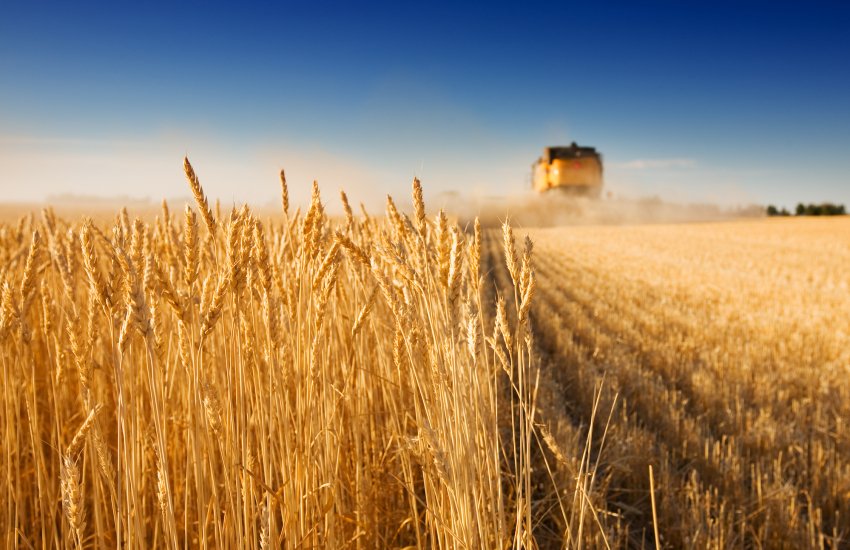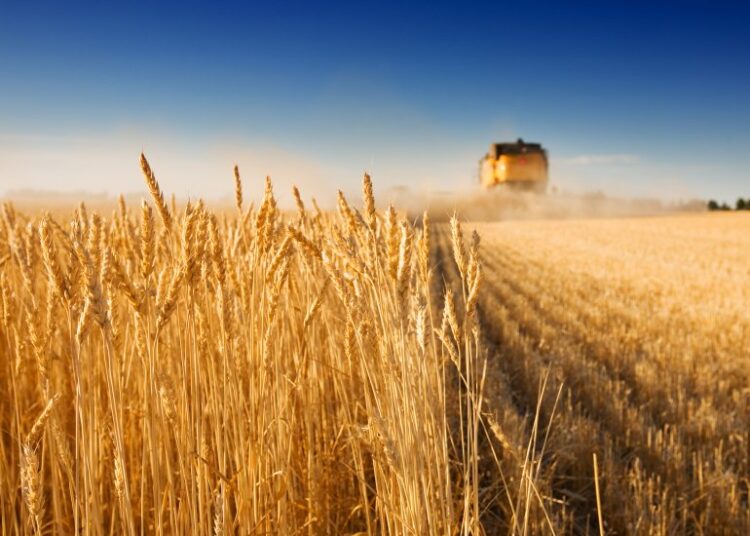
Alex Lissitsa against the return of foreign exchange earnings
Bill No 8166 has sparked a strong reaction. This is always the case when the Verkhovna Rada proposes innovations for the agricultural sector. With this document the legislators want to introduce a new export mechanism where currency earnings are guaranteed to be returned to the country. We explain why such a law is needed and what manipulative statements are heard now, delo writes.
The grain scheme is still alive
Dysfunctional grain traders continued to abuse currency transactions. With the outbreak of full-scale war this scheme has become very popular: many wealthy Ukrainians seek to preserve capital, hiding it in bank accounts somewhere in peaceful Europe. The grain market is the best way to do this.
The scheme has been in place since 2014, when the National Bank allowed foreign currency to be sold at a below-market rate. This rule was later abolished, but the scheme still exists, costing the budget an average of $500m a year.
Now the scale of the deal has become alarming. The total volume of foreign currency earnings not returned to Ukraine is about $5 billion, of which $4 billion is accounted for by sunflowers and grains. This is the data of the National Bank, which was recently voiced by the Executive Director of the All-Ukrainian Association of Communities Ivan Slobodyanik. According to his estimates, the scheme captures almost half of the sunflower market. Large players work legally, exporting finished products – oil and meal. Smaller ones buy up and export raw materials. And in record amounts.
According to the Association Ukraliaprom, export of sunflower seed from Ukraine exceeded 1.6 million tons in March-August 2021/22 marketing year. This is 10 times more than in 2020/21 MY. If nothing is done, by the end of the year the export of this group could exceed 2.5 million tons. According to the association, there is no reason for such a rapid increase in exports, and it poses a threat to domestic producers of value added products. Ukrainian oil mills will not be able to load their production capacities because of the lack of raw materials. This means thousands of jobs and hundreds of millions in taxes.
“When they bought 1.6 million tons of sunflower from us, which is about 700-800 thousand tons of oil, Europe said that it did not need our oil. What for? It has already made it itself from our sunflower… Why should Bulgarian factories work and send 140 thousand tons of sunflower meal to China, produced from Ukrainian sunflower? But this is our market,” Stepan Kapshuk, director-general of Ukrmasloprom, said in an interview with UkrAgroConsult.
What do lawmakers propose?
The draft law No. 8166 obligates all exporters before sending a batch of grain or sunflower seeds to deposit the money in any commercial bank, which will guarantee the return of foreign currency earnings.
The new export rules would apply to wheat, barley, corn, soybeans, rapeseed, sunflower seeds, oil, oilcake and meal.
The minimum deposit is 15% of the customs value of the consignment. After the goods have been sold and the currency returns to Ukraine, the deposited funds shall be fully returned to the exporter. If he returned only a part of the currency proceeds, he will receive back the proportional share of the deposit.
The lawmakers made an exception for large exporters with a good reputation. If the aggregate amount of all previous export deposits exceeds 35m dollars (but does not exceed 15% of the customs value), there is no need to replenish the deposit.
Yes, the proposed bill may create certain bureaucratic difficulties for exporters, but it contains no financial risks for either agrarians or exporters. At least, for those who are really exporting and not converting cash.
It creates a safety cushion for the government, which will help eliminate (or at least minimize) fraudulent schemes, stop capital outflow and stabilize the hryvnia.
Who criticizes the bill and why? Why is Alex Lissitsa against it?
Almost immediately after the draft was published on the Verkhovna Rada’s website, the campaign against it was launched by the Ukrainian Club of Agrarian Business. Alex Lissitsa, IMC director general and former head of the UCAB, believes that 8166 “has every chance to do what the Great War with Russia failed to do – lead to the collapse of exports in the agricultural sector”. His arguments, however, are contradictory. Lissitsa heads the IMC agricultural holding, which buys oilseeds and grains from farmers. It cannot be ruled out that some of these deals are paid in cash.
So there may be a self-interest behind this criticism, said Taras Zagorodny, managing partner of the National Anti-Crisis Group.
“Considering the sphere of interests of Mr. Lissitsa, one may say that he is pursuing personal interests rather than interests of the state and his claims are attracted “by the ears”. His arguments are more than dubious and attracted to his own benefit,” the expert wrote.
UCAB notes that opening of deposits will require substantial financial and human resources from farmers. However, he does not propose to change this point, for example, by reviewing the amount of the deposit or the provision on each export transaction. Instead, the head of the IMC agricultural holding calls on the Ministry of Agribusiness to block the project. Taras Zagorodnyi drew attention to this:
“One can see with the naked eye that the head of the agricultural holding is trying to block in any way the government’s attempt to stop the leakage of money from the country.”
Another false argument is that the NBU will be able to “freeze” 15% of deposits and dispose of them at its own discretion. There is no such rule in the draft – the funds will be fully refunded to the exporter as soon as he fulfills his legal obligation and returns the proceeds to the country.
Another important point criticised by businessmen interested in the withdrawal of funds. Opening a deposit for those who have already deposited $35m is not discrimination, but an attempt to cut off exporters of sunflower seeds and grain, who usually engage in money changing hands”, Zagorodnyy said.
Currently, the Tax Committee is examining draft No. 8166. Business and the public have time to make constructive suggestions. All the more so because the authors of the draft are ready for compromises. “We can debate 10% or 15%, but we are not ready to say whether or not we are ready to give it back. It is better for medium-sized and large exporters to simply return foreign currency earnings to Ukraine,” the head of the tax committee, Vadym Hetmantsev, said in a comment to Agropolit.








